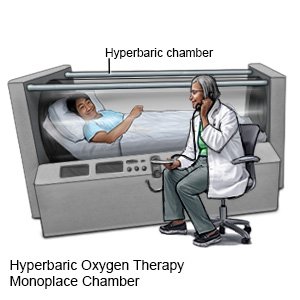Smoke Inhalation
Medically reviewed by Drugs.com. Last updated on Sep 1, 2024.
What is smoke inhalation?
Smoke inhalation means you breathed in smoke from burning materials and gases. The smoke may contain chemicals or poisons, such as carbon monoxide and cyanide. The harmful chemicals may come from burning rubber, coal, plastic, or electrical wiring.
What are the signs and symptoms of smoke inhalation?
Signs and symptoms depend on the source of the smoke and how long you were exposed:
- Cough and hoarseness
- Chest pain or coughing up blood
- Trouble breathing, such as shortness of breath and noisy breathing
- Headache, abdominal pain, and nausea
- Eye irritation or vision problems
- Fainting
- Soot in your nostrils or throat
How is smoke inhalation diagnosed?
Healthcare providers will ask you about the source of the smoke that you inhaled. They will also ask about the amount of time that you were exposed to the smoke. You may need any of the following:
- Blood tests are used to check the amounts of oxygen and carbon dioxide. The results can tell healthcare providers how well your lungs are working.
- A bronchoscopy is a procedure to look inside your airway. A bronchoscope (thin tube with a light) is inserted into your mouth and moved down your throat to your airway. Tissue and fluid may be collected to be tested.
- X-rays may show lung damage or signs of infection, such as pneumonia.
- Pulmonary function tests help healthcare providers learn how well your body uses oxygen. You breathe into a mouthpiece connected to a machine. The machine measures how much air you breathe in and out over a certain amount of time.
- A V/Q scan is used to check your lung function. Radioactive dye will be put into your vein. Your blood will carry the dye to the blood vessels in your lungs. Pictures will be taken to see how blood flows in your lungs. Then you will breathe in a gas. Pictures will be taken to see how well your lungs take in oxygen.
How is smoke inhalation treated?
Treatment depends on how the smoke affected you. Your lungs and airway may become irritated, swollen, and blocked. The damaged airway and lungs prevent oxygen from getting into your blood. You may develop respiratory failure. Respiratory failure means you cannot breathe well enough to get oxygen to the cells of your body. You may need any of the following:
- Medicines may be given to open your air passages so you can breathe more easily. You may also need medicines to prevent or treat pain or a bacterial infection.
- Antidotes may be given to stop or control the effects of the smoke you inhaled. The antidotes used will depend on the type of smoke you inhaled.
- Hyperbaric oxygen therapy is used to get more oxygen into your body. The oxygen is given under pressure to help it get into your tissues and blood.

- Extra oxygen may be needed if your blood oxygen level is lower than it should be.
- A ventilator is a machine that gives you oxygen and breathes for you when you cannot breathe well on your own.
How can smoke inhalation be prevented?
- Make sure electrical wiring, chimneys, wood stoves, and space heaters are working properly. Use flammable liquids safely. Store them in a locked area out of the reach of children. Use a childproof lock or latch so children cannot get to the liquids.

- Do not leave a lit cigarette. Discard cigarettes properly. Keep lighters and matches in a safe place where children cannot reach them.
- Make an escape plan in case a fire breaks out in your home. Practice it often with your family. Crawl on the floor to escape a burning building. The air will be cooler and cleaner.

- Use smoke detectors in your home. Put 1 detector on each level of your home and outside each bedroom. Check the smoke detectors regularly to make sure they are working. Change the batteries at least 1 time each year.
- If you need to escape a burning building, crawl on the floor. The air will be cooler and less filled with smoke.
Call your local emergency number (911 in the US) if:
- You cough up or vomit blood.
- You have a fast heartbeat and chest pain.
- You have increased shortness of breath.
When should I seek immediate care?
- You feel weak.
- You have pale and clammy skin.
- You are wheezing.
- Your lips or fingernails turn blue.
When should I call my doctor?
- You have a fever.
- You have questions or concerns about your condition or care.
Care Agreement
You have the right to help plan your care. Learn about your health condition and how it may be treated. Discuss treatment options with your healthcare providers to decide what care you want to receive. You always have the right to refuse treatment. The above information is an educational aid only. It is not intended as medical advice for individual conditions or treatments. Talk to your doctor, nurse or pharmacist before following any medical regimen to see if it is safe and effective for you.© Copyright Merative 2024 Information is for End User's use only and may not be sold, redistributed or otherwise used for commercial purposes.
Learn more about Smoke Inhalation
Treatment options
Care guides
Further information
Always consult your healthcare provider to ensure the information displayed on this page applies to your personal circumstances.
